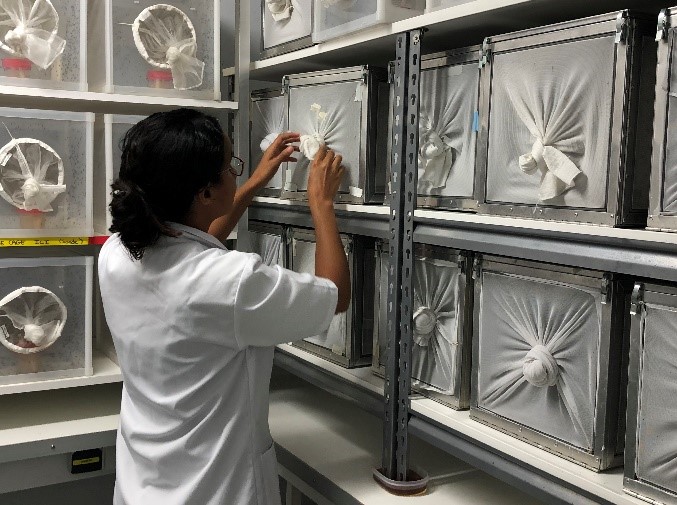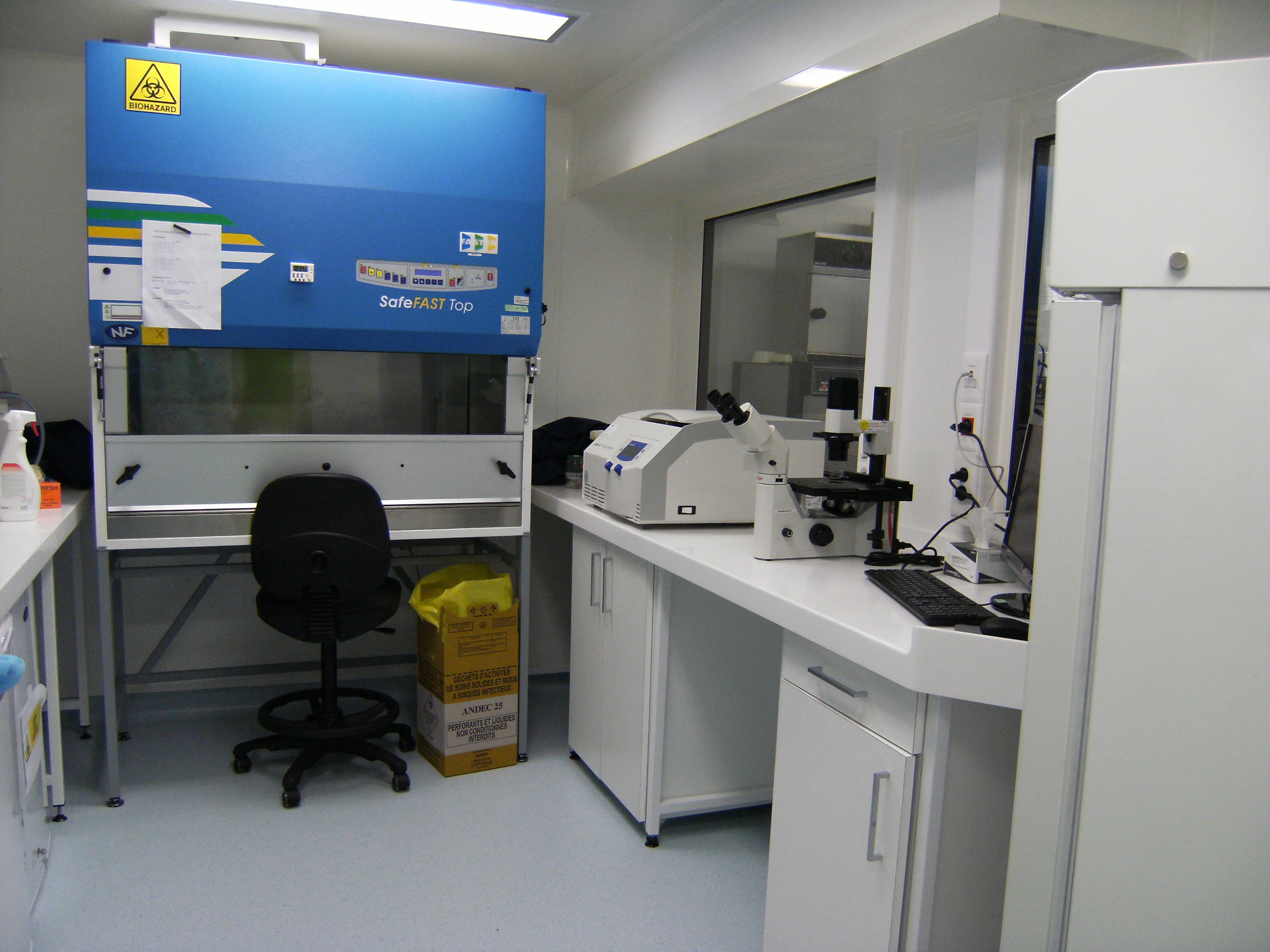Description
Material provided: Personalized Training for end-users
Unit definition: 1 week of access
Location: Institut Pasteur de Nouvelle Calédonie (IPNC), Noumea, New Caledonia
Biosafety Level: CL1 & CL2
Installation name: P2+ Lab at IPNC
Website: IPNC
Description of the facility
The P2+ Lab (Biosafety Level (BSL) 2+) is located at IPNC, Noumea, New Caledonia. It is a biosecurity lab dedicated to the study of pathogens. IPNC has got authorization to conduct research on endogenous vectors and arboviruses. IPNC has got CL1 insectary (30 m2) with two rooms dedicated to insect rearing and insecticide resistance surveys. The P2+ lab has two rooms dedicated to arboviruses production and experimental infection assays (25 m2).
IPNC is involved in both research and surveillance activities dealing with different arboviral diseases as Dengue, Chikungunya or Zika. Current surveillance activities are based on arboviruses and entomological expertise performed for the New Caledonia and/or the Pacifc region.
Available vectors and viruses
Mosquito population to be used: Aedes aegypti from New Caledonia from field-collection or from lab colony.
Dengue virus to be used: Dengue virus from New Caledonia preserved in IPNC biobank’s.
Course overview
Please specify in your request which training programme(s) you apply for.
Option 1: Rearing and insecticide resistance testing
A personalized (1-2 persons) 5-day theoretical and practical laboratory-based course will provide a necessary background to successfully establish and maintain Aedes agypti in insectaries including rearing of mosquitoes, larval diet production and to realize and interpret insecticides resistance tests following WHO recommendations.
The course is aimed at early career scientists, and/or applicants looking to strengthen their research and surveillance capacity in this area.
Option 2: Experimental infections with dengue virus
A personalized (1-2 persons) 5-day theoretical and practical laboratory-based training will provide a necessary background to successfully plan, design, and conduct insect infection studies with Risk Group (RG) 2 and RG3 pathogens.
The course is aimed at early career scientists, and/or applicants looking to strengthen their research capacity in this area. To get the full value from the course, prior experience in working with human/animal pathogens in high biocontainment facilities or with entomological knowledge is an advantage.
The practical modules of the course will take place within the BSL2+ lab and insectaries. No infectious biological agents will be handled during the course.
Theoretical modules: Legal and ethics aspects, Principles of risk assessment, Facility design and operation, Experimental design for vector competence studies and interpretation of the results.
Practical modules: Insect rearing in dedicated non-contained insectary and in high biocontainment laboratories, Insect infection procedures: artificial blood-feeding, dissection and sample collection.
Equipment used
Trainees will use the following equipment:
Option 1:
- Stereo microscope, Leica
- Refrigerated table
- Artificial feeding equipment, Hemotek
- WHO test tubes
Option 2:
- Biological Safety cabinet, type 2
- Climate Chamber
- Stereo microscope
- Refrigerated centrifuge
- Refrigerated table
- Artificial feeding equipment Hemotek
For more information, please contact us.


